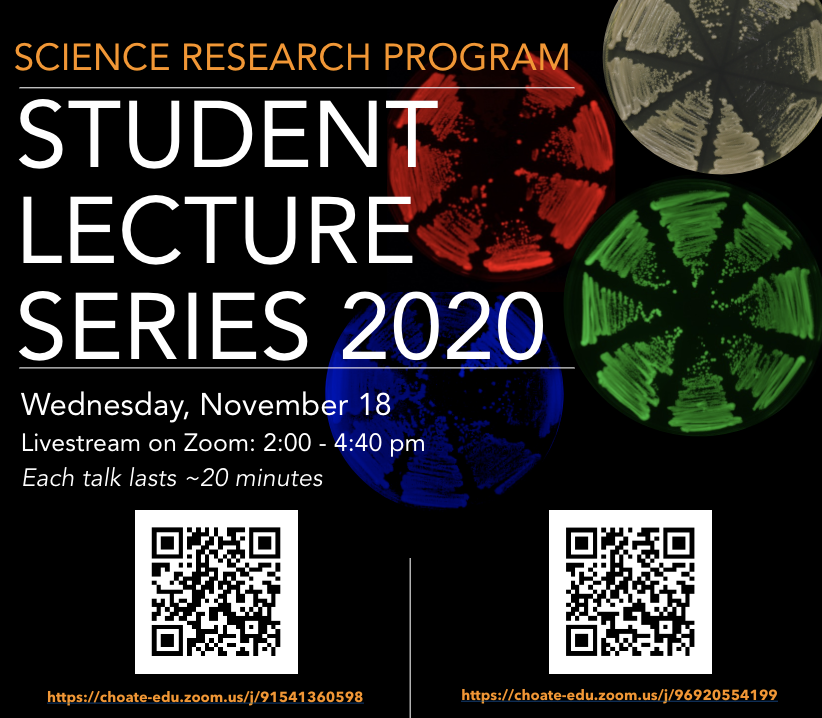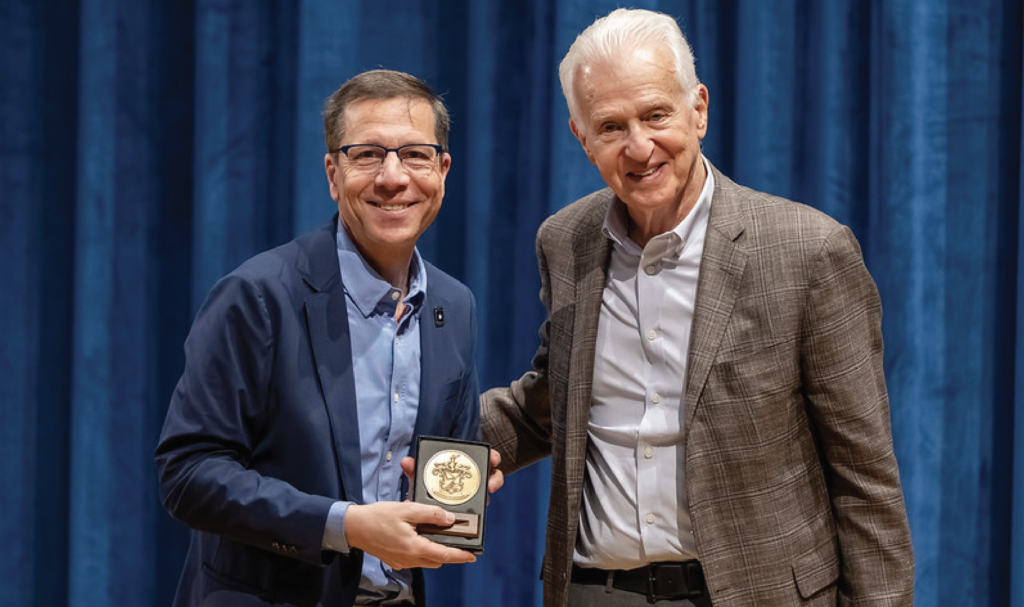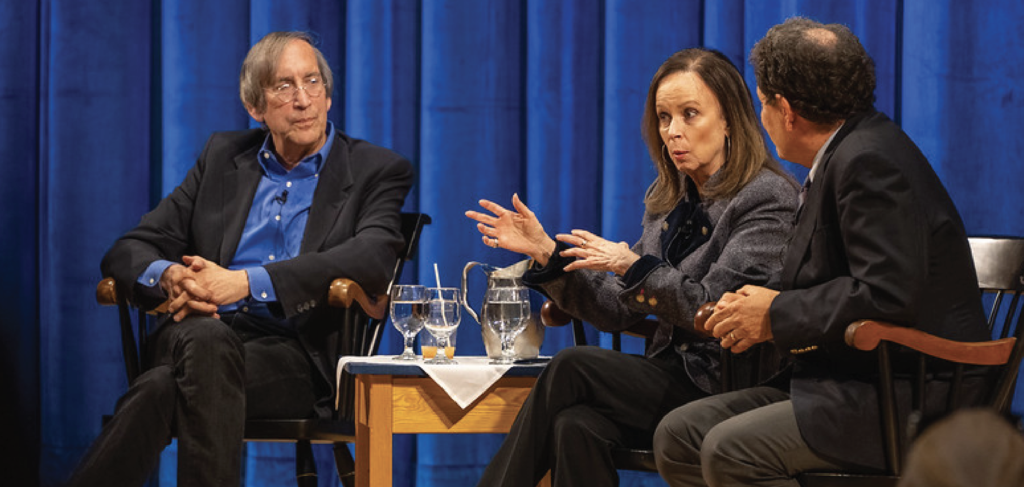
Image courtesy of Niki Gummadi
Want to learn about a leading cancer treatment or the latest galactic discoveries? Now is your chance to do so. On Wednesday, November 18, seniors in the Science Research Program (SRP) will be participating in the Student Lecture Series (SLS), an annual event in which students present their research from the past summer to members of the Choate community.
The oldest of Choate’s signature programs, SRP consists of 16 students in two sections: the biological and quantitative sciences. According to Dr. Selena Gell, who directs the biological section of SRP, the purpose of the program is to “provide students with an opportunity to conduct graduate level research at university labs around the world.”
Dr. Chris Hogue, who directs the quantitative section of SRP, added that the program helps foster the atmosphere of a professional scientific research lab and gives students a unique opportunity to conduct research with the support of their peers.
Given the restrictions imposed by the ongoing Covid-19 pandemic, large portions of the program, including both SLS and the students’ summer internships, have been impacted. SLS has shifted to a hybrid format with a maximum of 20 socially distanced and masked audience members permitted inside the presentation room. Each lecture will also be broadcasted live on Zoom so that the entire community can watch the presentations.
Unlike previous years, the Paul Mellon Arts Center (PMAC) main stage theatre will serve alongside the Getz Auditorium in the Icahn Center for Science as the second physical venue, replacing the much smaller Elman Auditorium in Lanphier Center. In an effort to minimize contact between students, all 16 talks will be conducted on November 18 instead of being split across two days as in previous years.
Regarding the summer research portion of the program, the Covid-19 pandemic greatly affected some student internships depending on the lab, location, and topic of research. Dr. Hogue said, “The range of what students did and took away was very different, but it mirrored the real world. Some labs had a very normal summer while there were others that were more or less shut down.”
Max Fan ’21, a student in the quantitative section, was on the former end of the spectrum. “My lab was purely computational, so it was very conducive to remote research. Other labs had to drastically change their technique to adjust to remote research, which must have been difficult,” said Fan.
Max O’Connor ’21’s lab work was significantly impacted by the pandemic. He said, “After spending a year researching cardiovascular disease and induced pluripotent stem cells in preparation for an internship in the Ashley lab at Stanford University, it was hard to process that my internship had been canceled due to Covid-19.”
Despite the changes, he was grateful for the support of the SRP community. “Dr. Gell helped ensure that I would still be able to work on a fascinating scientific research project over the summer. I worked on a data analysis research project with a company called MILRD,” he concluded.
The ten-minute talks will begin at 7:00 p.m. — check your Choate email for Zoom information.




